Away: The Survival Series wants you to experience the "devastating impact of climate change" from the perspective of a sugar glider
"Every blade of grass has been accounted for": How Away: The Survival Series embraces the miniature for a cautionary climate change fable
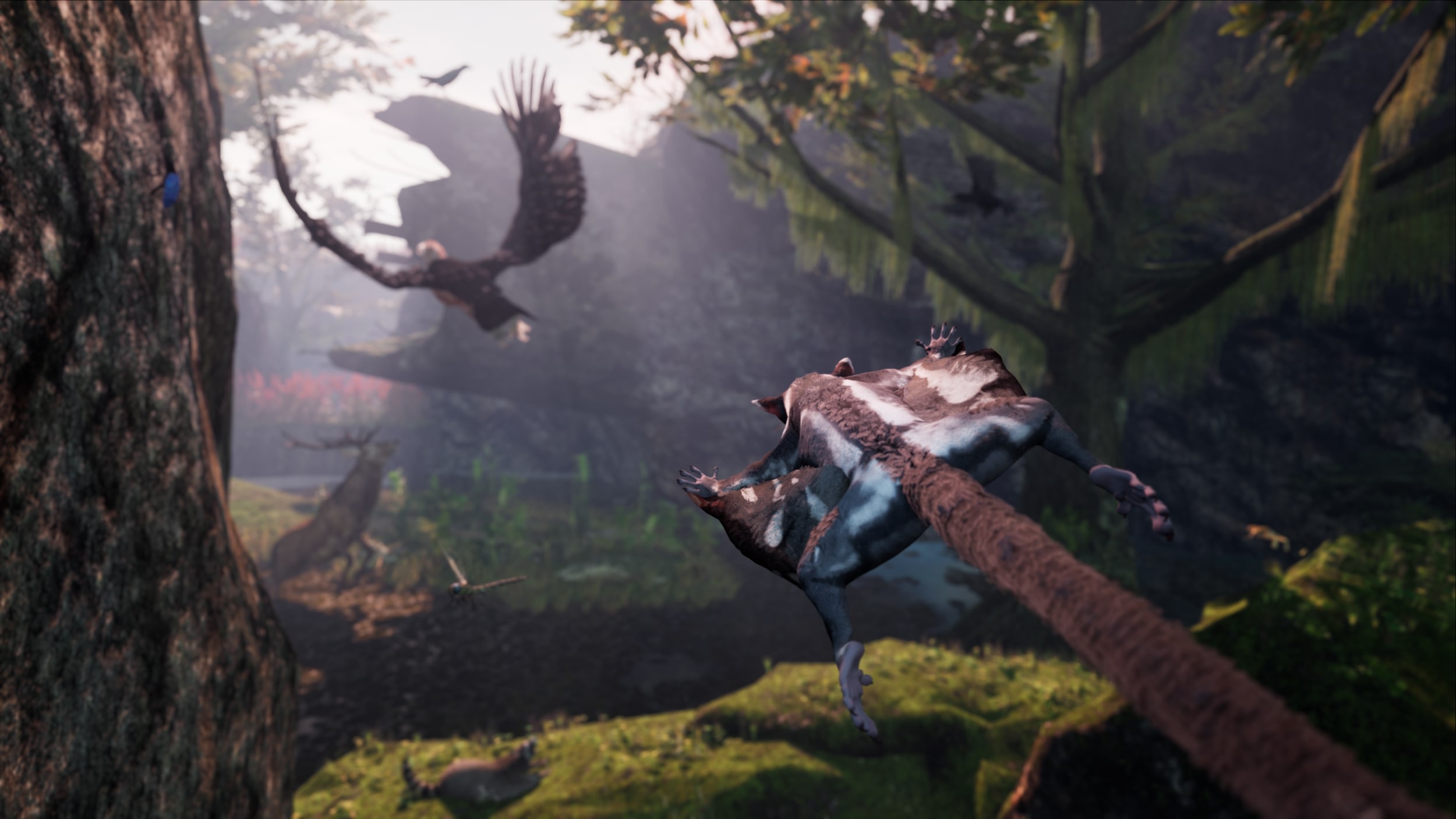
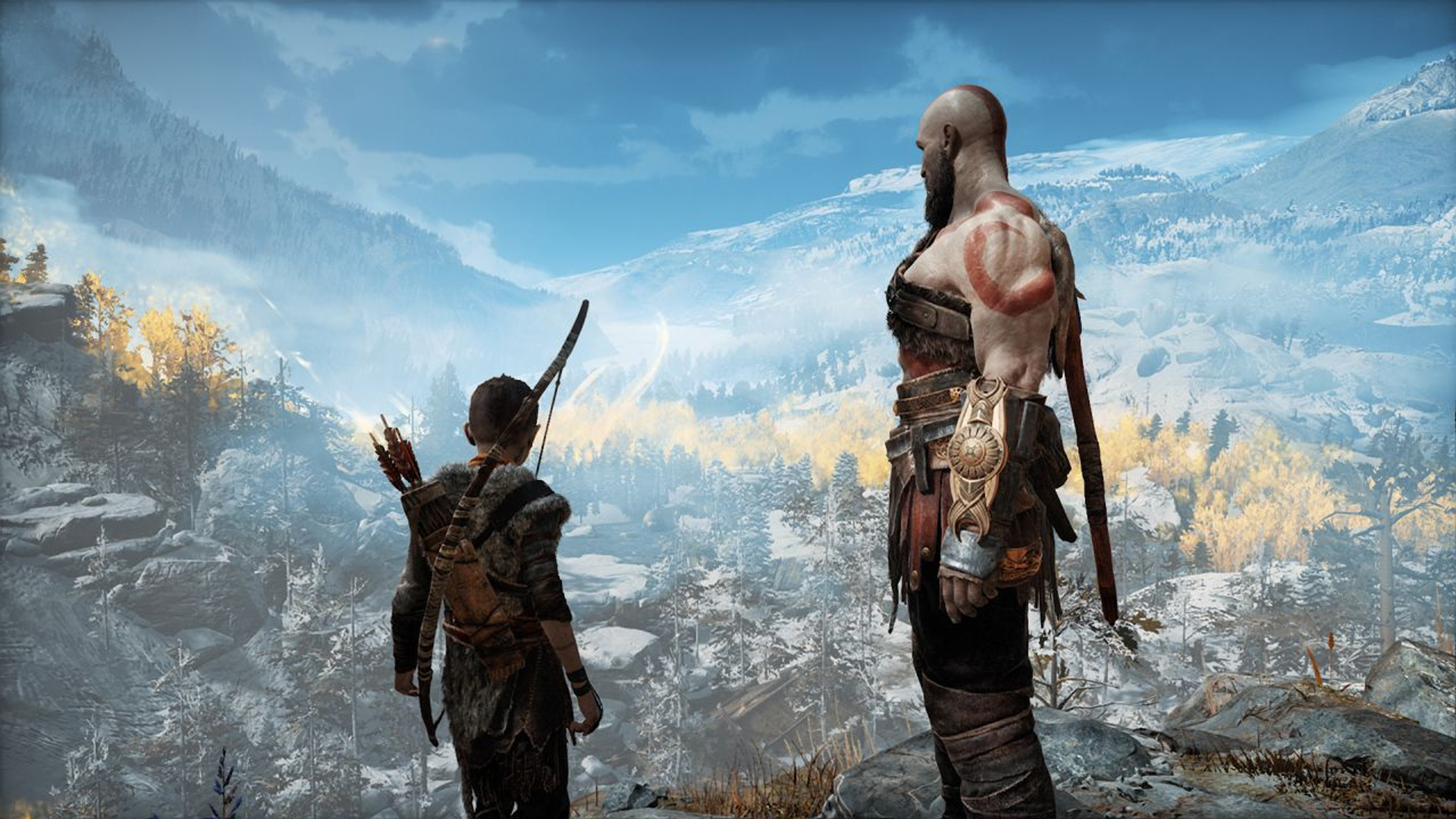
How the best PlayStation exclusives learn from each other to achieve greatness
Say what you want about the zombies, cannibals, and excessive levels of irradiation, but video game apocalypses often paint a far too generous portrait of earth's future. Even in the worst case scenarios depicted in these interactive dystopias, humanity is still very much alive and at the centre of the picture. But the fact is that this home of ours could easily get by without us, and there's no reason to assume that we'll be around and living on it forever.
A few titles, such as Tokyo Jungle and Nier: Automata, have played with the idea in the past, but as climate change rises to the top of the agenda for global society, it's likely to become an ever more prescient subject for our fiction, including the stories we see in video games. Away: The Survival Series is one of the first in an emerging lineage of "climate games", an indie title from Canadian studio Breaking Walls where you play as a sugar glider in a post-climate landscape where nature has reclaimed the earth from humanity's grip.
"Climate change is a topic that's near and dear to our hearts and something that we think is more and more relevant as time goes by," Breaking Walls' head of growth André-Paul Johnson tells me. "One of the main aims of Away is giving players a window into what the planet might look like if we don't do anything to address the issue. As you explore the world, you can spot ancient relics and artefacts from the time when humans still walked the earth. And you'll experience the consequences of this destabilised climate, so to speak, as you encounter crumbling ecosystems throughout your journey."
Treetop trouble
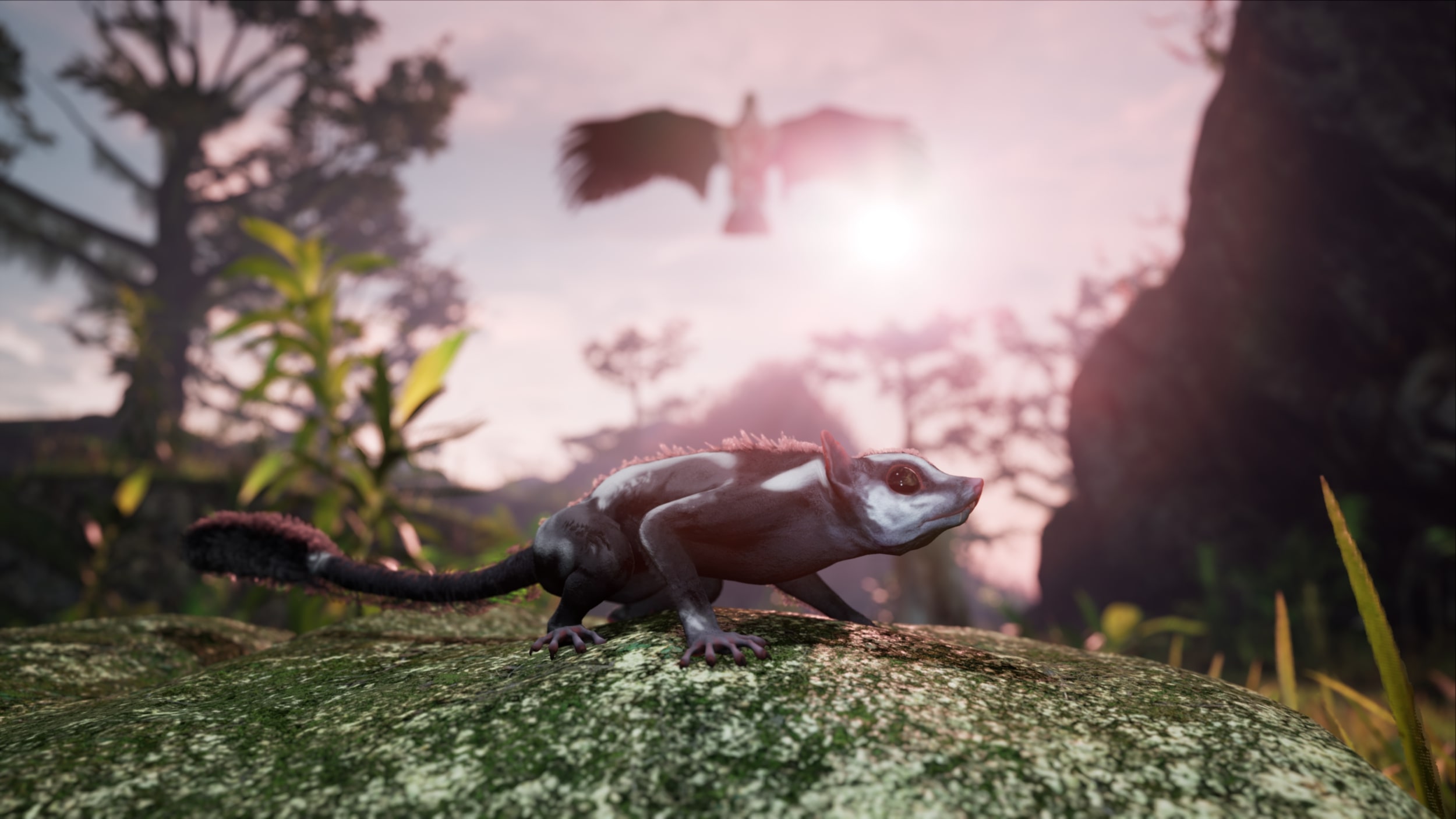
The first manifestations of Away's core conceit weren't inspired by a sudden urge to ring the ecological alarm bells, however, but by the serene beauty and warm, humanist tone of contemporary nature documentaries like the BBC's award winning Planet Earth series. Breaking Walls co-founders Laurent Bernier, Nathaniel Dufour, and Sebastien Nadeau wanted to create a game that similarly immersed in the wonders of the natural world, believing that the medium's interactive dimension could elevate that sense of captivation even further.
"There are loads of games set in beautiful environments with really spectacular views," explains Johnson, "but you're always playing as a human or some sort of humanoid creature. The perspective of animals is one that hasn't been explored that much and video games."
In case you're wondering, a Sugar Glider isn't some suspiciously licensed brand of candy, but a species of gliding possum native to Oceania. They're either adorable, or kind of creepy, depending on your proclivity to small marsupials, and – despite the environmental themes of Away: The Survival Series – aren't yet considered endangered, despite the threats to their habitat posed by deforestation, and the fact that they represent a tasty meal for dozens of potential predators.
Johnson reveals that the team wanted a creature that was at the bottom of the food chain, and eventually landed on a sugar glider for the gameplay potential afforded by their acrobatic form (true to its name, the animal can deploy its long tail and wing-like membranes to soar up to 50 metres between treetops).
Weekly digests, tales from the communities you love, and more
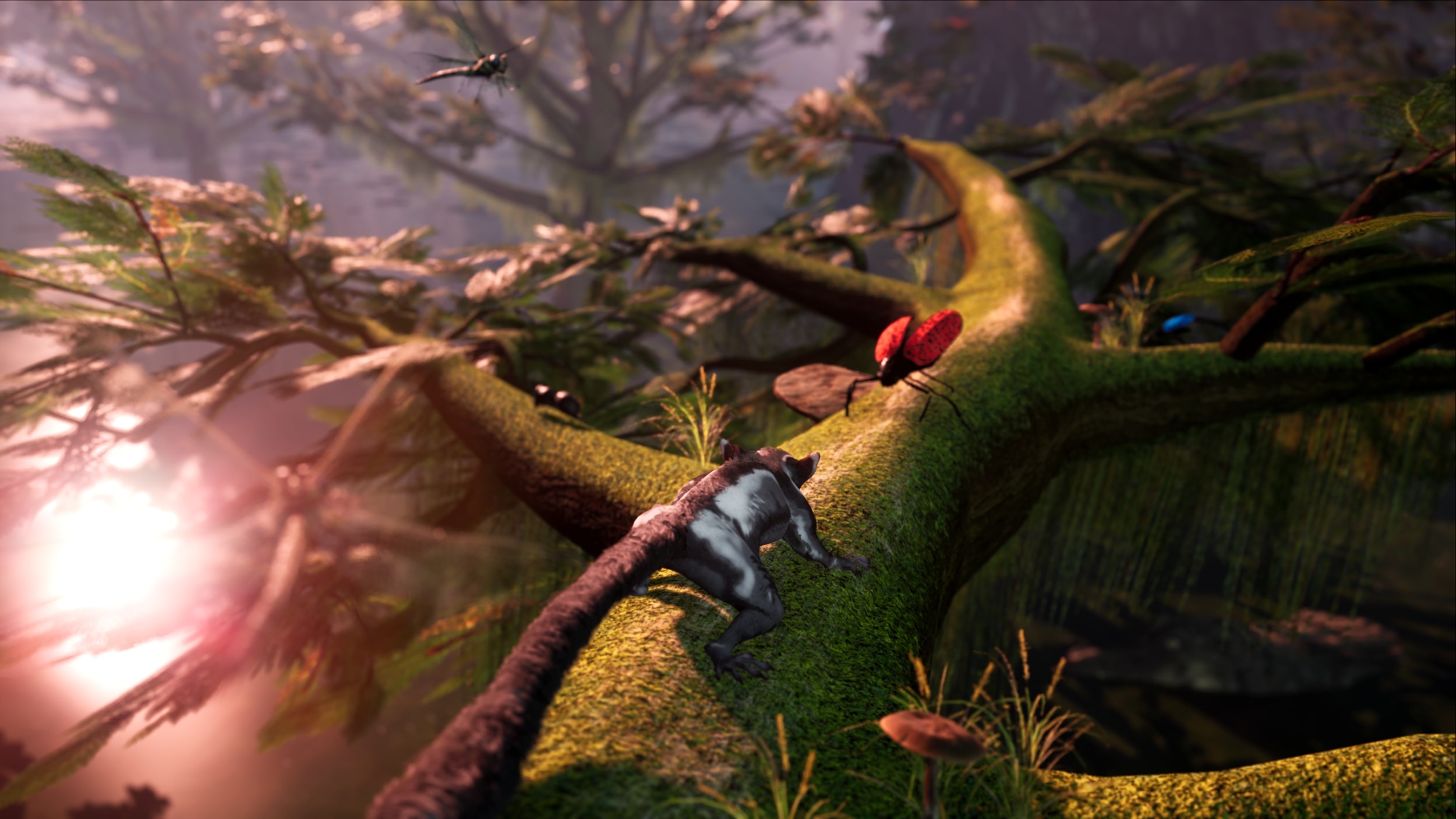
"We've watched a lot of sugar glider videos online," Johnson admits, laughing. "We've studied their movement, their behaviour, their entire life cycle, really. Originally we tried mimicking them with more realistic mechanics, replicating the angle of descent of their gliding and stuff like that. But turns out, it's not that fun to play as a realistic sugar glider, as it ended up limiting the gameplay to the extreme. So we took some creative liberties in altering those mechanics a little bit to allow the player to be able to jump higher and glide farther. "
You won't just be falling with style, like a little Buzz Lightyear, in Away: The Survival Series. The subheading of its title isn't just there for franchise-building purposes, though Johnson does admit hope for a number of sequels featuring different playable creatures, but alludes to the inherent dangers that threaten your journey throughout the experience, such as vicious predators and cataclysmic storms.
"The world is not post-apocalyptic in the way you might imagine it to be." explains Jonshon. "It's vibrant and lush and nature has kind of taken over. It's not what you usually picture when you think of a dystopia, so we've shied away from using the term "post-apocalyptic" for that reason, because we feel it doesn't necessarily conjure the right images in the minds of players."
And in case the nature documentary influences couldn't be made any clearer, the entire experience is backed by an original score from Planet Earth 2's award-winning composer Mike Raznick.
Law of the jungle
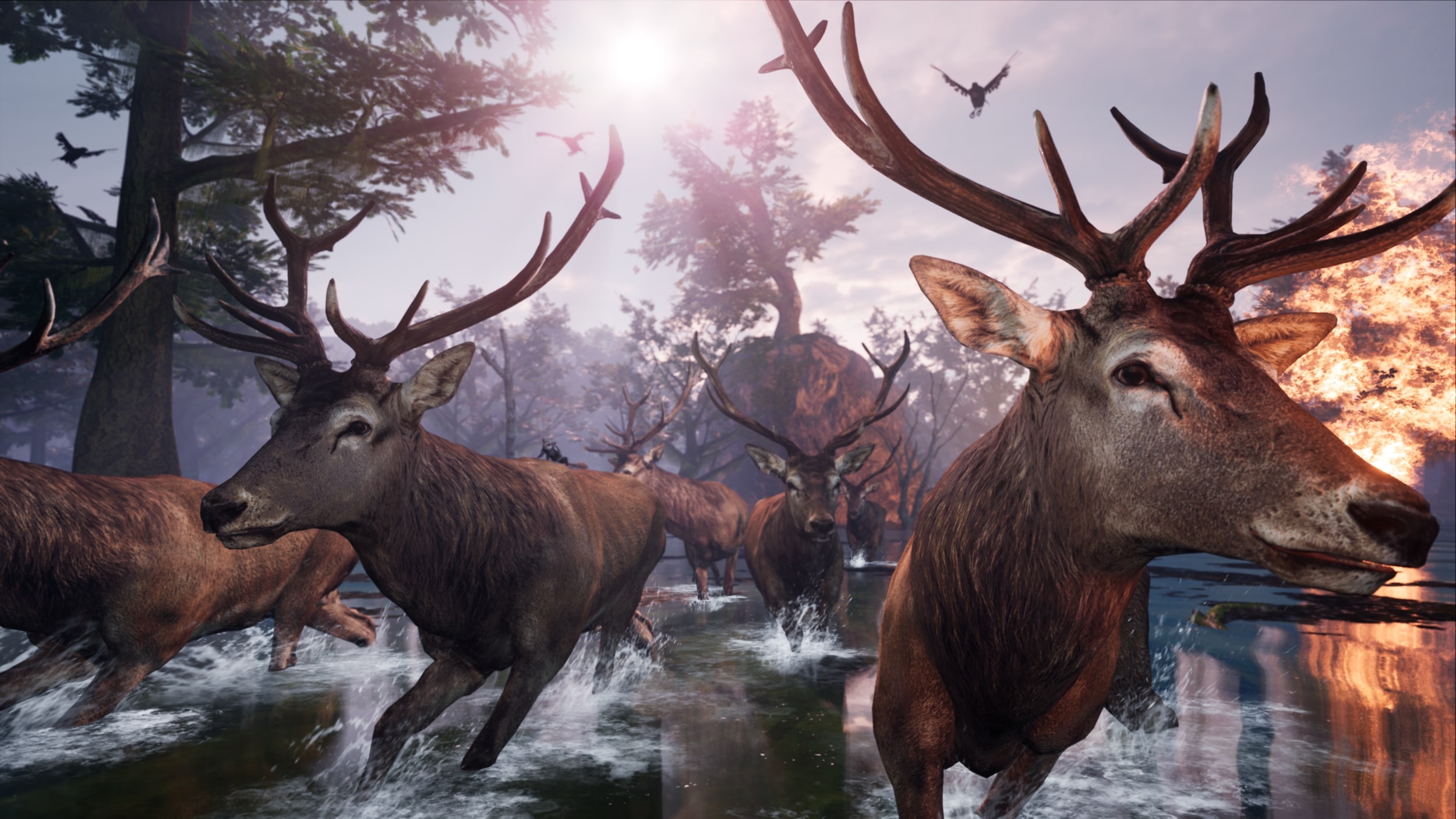
"The world is not post-apocalyptic in the way you might imagine it to be."
André-Paul Johnson
After a successful kickstarter campaign, a "game changing" showcase on one of PlayStation's State of Play livestreams, and recently acquired extra $1.75 million of venture funding, Johnson tells me that Away: The Survival Series is hoping to launch on PC and PS4 within the next year. The studio, like thousands of other developers around the world, are currently working from home with lockdown measures in place across Quebec, Canada, to stem the tide of COVID-19, but he assures that the transition to remote work hasn't drastically affected their development pipeline.
"Ultimately, we just hope that Away will encourage players to reflect on the climate crisis, and help bring more attention to this issue through the lens of gaming, which is something that we feel hasn't really been done that much yet," says Johnson.
"People talk about climate change through most media, but we haven't really seen games dive into that topic enough. And we think there's a huge potential for impactful messaging by exploiting the unique power of gaming, especially in being able to reach people who are otherwise out of reach."
For more, check out the biggest new games of 2020 and beyond still on the way, or watch below for our latest episode of Dialogue Options.
I'm GamesRadar's Features Writer, which makes me responsible for gracing the internet with as many of my words as possible, including reviews, previews, interviews, and more. Lucky internet!



